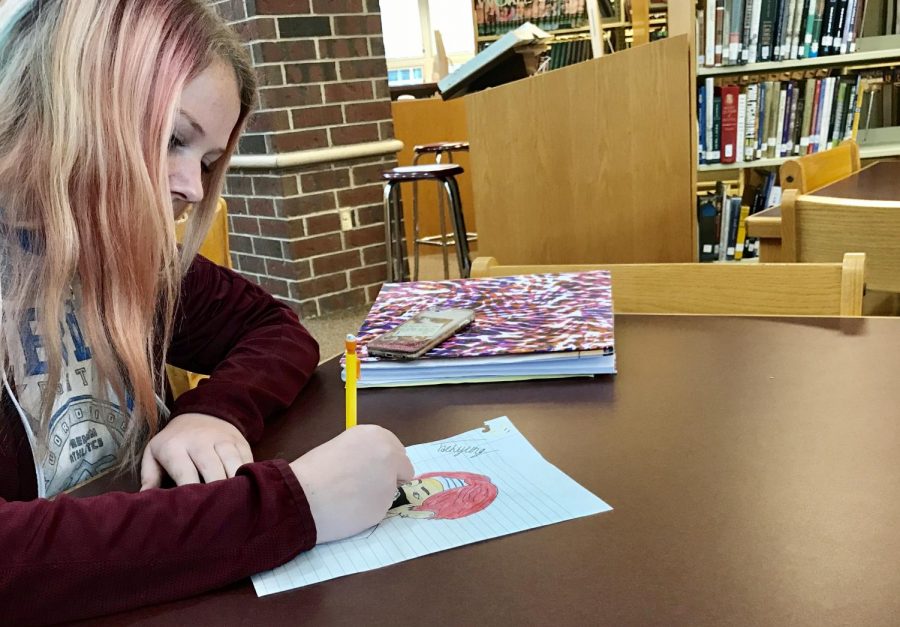Finding Positivity in the Freezing Weather
Sophomore Alexis Hardwick practices her drawing skills.
Have you noticed a decline in your mental health this winter? Do the dark, cold days get you down? Is so, you’re not alone, and it’s more common than you think!
According to WebMD, this could be due to Seasonal Affective Disorder, a condition that worsens an individual’s state of mental health which appears hand-in-hand with the cold months.
Seasonal Affective Disorder is believed to release hormones that trigger attitude-related changes at certain times of year, which explains why it is so common throughout the winter. WebMD stated that it is widely believed that less sunlight during the fall and winter leads to the brain making less serotonin, a chemical linked to brain pathways that regulate mood, therefore taking you on a roller coaster of emotions.
Though some students at RHS struggle with their mental health year round, sophomore Alexis Hardwick stated that she has observed the effects of Seasonal Affective Disorder this year.
“I usually always go outside and hang out with friends or go skating outside, but when it is cold nobody wants to hang out and I can’t really skate because it is always so cold. It’s also more difficult because a lot my friends and I can’t drive yet,” Hardwick stated.
Different people find joy in a variety of things, so finding tips and strategies that help you is crucial to staying positive in the winter. Junior Megan Foster and Hardwick each shared some of their favorite ways to stay upbeat throughout the frosty months.
Foster stated that she tries to, “Get out and do fun things with my friends or watch movies or go out to eat with my friends and just kind of keep my mental health up and happy. Most of the time if I’m super upset I just kind of let myself relax, and watch Netflix.”
“I started drawing more and practicing a new language,” Hardwick said.
If you aren’t individually struggling, but you suspect a friend or family member might be, there are many signs and symptoms of Seasonal Affective Disorder that you may be able to identify.
These symptoms, according to WebMD, include having less energy, trouble concentrating, fatigue, greater appetite, or increased desire to be alone.
Hardwick said if she believed one of her loved ones were struggling she would, “Let them vent to me and I will make it known that I will be there for them and I will help them in anyway I could.”
Foster stated that to help a loved one she finds it beneficial to “…hang out with them and I just kind of do fun things with them to boost their happiness levels.”
Though it is often hard to keep a smile on your face through the winter, try to remember that you will push through with a little faith and determination. Keep in mind that in this case, it is a bad season, not a bad life.
If you still can’t seem to find motivation to push forward, there are resources listed below through which you can ask for help.
Resources
RHS Counselors
Self Harm Text Hotline- Text CRISIS to 741741
Suicide Hotline- 1-800-273-8255
Real Help for Teens Hotline- 1-877-332-7333

Emma is a senior in her second year of journalism as Marketing Manager and Staff Writer. Outside of journalism, she loves to spend time with her friends, family, and just about anyone else who can make her laugh. She is excited to grow as a writer and hopes to be a voice for others through her writing.






